- Home
- Tony Parsons
Back to the Pilliga Page 4
Back to the Pilliga Read online
Page 4
It was a total shock when Mum rang to say that my father had died. It transpired that he’d a massive heart attack and succumbed before the ambulance could get him to hospital. The provisions of his will were just as surprising. Before he died he’d had a massive change of mind about what would happen once he passed away.
Kamilaroi had always been uppermost in Father’s mind and I’m inclined to think it was the main reason he changed his will. What it all boiled down to was that he had sought to bring me home and to this effect he had ceded one third of the property and its livestock to me. Though I appreciated his decision, owning a third of Kamilaroi didn’t offer sufficient inducement for me to go back. I had sworn I would never return to Kamilaroi while either Father or Stuart remained on the property and I intended to keep that oath.
I went to Father’s funeral for Mum’s sake, though because my private security business was still relatively new I couldn’t stay away long.
Father’s death made Stuart the top dog on Kamilaroi which had the effect of intensifying his high and mighty behaviour.
To escape both Stuart and the oppressive post-funeral atmosphere, I found myself drawn to the Pilliga Scrub.
As a keen amateur photographer the scrub’s huge variety of wildlife had long interested me so I took the opportunity of the week after Dad’s funeral to check it out. There were reputed to be at least one hundred and fifty varieties of birds in the scrub and I wanted to photograph some of them. At the top of my list was the Red-tailed Black Cockatoo, which was a larger and noisier variety than the more plentiful Glossy Black Cockatoo. There were also persistent reports of the sighting of what might be the Red-necked Pademelon, which is a kind of small wallaby. I have never believed that there were black panthers, or even a single panther, in the Pilliga Scrub but if there is any one place such animals could be it would be the scrub because it is so vast and for much of its area so thickly covered by trees and scrub.
It was not long after I’d come back to Sydney from the week off that included Father’s funeral that Mrs Eunice Kendall came to see me.
CHAPTER 6
I happened to be standing at the window contemplating my next appointment when a white Mercedes pulled into the vacant parking lot. I looked at my watch as a beautifully dressed middle-aged woman emerged from the car. Christine, my exuberant and attractive secretary, had arranged an appointment with me for a Mrs Kendall at 11am so I assumed this was the said Mrs Kendall.
Christine was the daughter of one of the grazier Baillies and had married into the Russell family, also graziers, but from what I could piece together, the marriage had been a disaster. Afterwards Christine reverted to using her maiden name and decided to accept secretarial work from Paul Ballard, a very successful financial adviser who I’d gone to Scots with. When Paul offered me the adjoining suite to his own, he mentioned he had a part-time secretary who was looking for more work and asked me if I’d like to share Christine.
Christine and I got on like a house on fire from the start and she turned out to be a whizz with computers and just about everything else associated with an office. We maintained a jokey and relaxed relationship and she had a kind of sisterly concern for me. She was also very well connected, not just in tweedy country circles but in the city as well, which resulted in her bringing me a lot of well-heeled clients.
Paul and I usually had a drink together at least once a week and he’d advised me to make some investments which had turned out to be very profitable. As well as being thankful for that and for allowing me to share Christine part time I was grateful to Paul because I occupied what was probably the most up-market office of any private investigator in the business, which went over very well with clients.
From the windows of my suite in North Sydney I had a great view of the famous bridge and the Opera House. North Sydney had become a very up-market place, nothing like the dowdy and rather seedy area it used to be. In the old days North Sydney had been a dreary, uninspiring area with many narrow-fronted terrace houses and uninviting streets which were the haunt of crims. Not anymore. Our office building sat cheek by jowl with top advertising agencies and a wide variety of financial gurus.
I heard Christine talking to Mrs Kendall briefly before she showed her into my office and introduced us. My first impression was that this woman was all class. There wasn’t a false note about her. Her dark hair was faultlessly set and the small, close-fitting piece of headgear she wore seemed to perfectly suit her slightly aquiline nose and dark eyes. She was wearing a dark grey beautifully tailored suit and her stockinged legs were still in good shape. Although no longer young, Eunice Kendall was still an attractive woman.
After showing her to a dark green sofa I asked Mrs Kendall if she’d like a tea or coffee.
‘Nothing for the moment, Mr Sinclair. Perhaps later,’ she said in a clear, well-articulated voice.
I nodded and sat down. ‘How can I help you, Mrs Kendall?’ I asked, sensing it would be best not to beat about the bush with this woman.
‘I want you to find my daughter, Mr Sinclair,’ she said.
I nodded, thinking how often I had heard that plea. Searching for missing sons and daughters comprised a not insignificant percentage of my business. The fact of the matter was that young people went missing in quite frightening numbers. Sometimes it was because they simply couldn’t get on with one or both of their parents or, in the case of women, because their father or step-father (more often the latter) had sexually assaulted them – often over a long period of time. Some women went into prostitution to earn a living or finance a drug habit or help pay their way through university. If a girl really didn’t want to be found she was likely to go on the game in some other state or country, which made the job of finding her even more difficult. I’d had a few such cases and assistance from the police had helped me locate some of the missing women. Then there were young people who simply disappear without trace. A few were either dumped in the bush or buried where they wouldn’t be found.
‘Your daughter, Mrs Kendall. How long has she been missing?’ I asked.
‘Just over two months,’ she answered with a slight quaver in her voice.
I reached across to my desk for a pad. ‘Can you please give me all her details. Her name first?’ I asked.
‘My daughter’s name is Caroline Clemenger. She’s from my first marriage, Mr Sinclair. She was taken hostage in a city bank robbery just over two months ago. Except for one piece of information there has been no other news of her,’ she said.
I remembered talking to Luke Stirling about the circumstances of the robbery she was talking about. Two men had robbed an inner-city bank and had taken away a young woman who’d been in the bank when they made the heist. It had been a very audacious and well-planned raid. A third man had been waiting outside in a getaway vehicle. To the best of my knowledge the police hadn’t made any headway in the case. Newspapers had reported that the men had got away with $80,000 though Luke had told me it was closer to $140,000.
‘Christine recommended you to me as a man of intelligence and integrity and assured me that if anyone can find Caroline, you can. I want you to put everything else to one side so that you can concentrate on finding my daughter,’ she said in a way that suggested she was used to giving orders.
I put the pad down and leaned back in my chair. ‘That’s asking rather a lot, Mrs Kendall. I have several other cases I’m working on. You should also understand that it’s quite possible your daughter is dead.’ It was a tough thing to say but I didn’t want her to be under any illusions.
‘I’m well aware of the possibilities, Mr Sinclair. Alive or dead, I need to know. If in fact Caroline has been murdered I want you to identify the men responsible. Either way I’m prepared to pay you whatever it takes,’ she said.
‘We’ll come to that in a moment.’ I said. ‘You said you had one small piece of information. What is it, Mrs Kendall?’
‘A young woman answering Caroline’s description was seen sitting in a ca
r outside a doctor’s surgery in Coonabarabran,’ she said, watching me closely for any reaction.
‘Did you say Coonabarabran?’ I said.
‘I did, Mr Sinclair. I thought that would interest you,’ she said.
‘Was it a positive identification?’ I asked.
‘Positive might be too strong a word as the woman who said she saw her could have been mistaken. She thought she recognised Caroline from when they were at the same school. She wasn’t aware at the time that Caroline had been abducted,’ she said.
I frowned and wrote a few lines on my pad. ‘How did you come by this piece of information?’ I asked.
‘I went to see the Commissioner of Police. It has always been my belief that if you need to know anything you go to the top of the tree to obtain it. The Commissioner was kind enough to tell me that they had information suggesting the third man in the robbery, the man who drove the getaway vehicle, comes from Coonabarabran. He did a stint in gaol for a burgling offence after which he lived at Bondi for a while though he hasn’t been seen there for a couple of years. The information about the man being the driver of the getaway car came from an informant who’d heard it from someone else. The Commissioner said that it was a case that had to be handled very delicately because a heavy-handed approach by the police could have harmful consequences for Caroline,’ she said.
‘So, because you feel the police aren’t making any progress, you want me to check out if anyone else has seen your daughter.’
‘That’s exactly right, Mr Sinclair.’
I shook my head. ‘I can understand your concern and naturally you want to do everything in your power to find out what’s happened to Caroline but this is really a police matter.’
‘If you had a daughter who’d been missing for two months wouldn’t you try to do something about it?’ she asked.
‘Yes, of course,’ I said, ‘but we don’t know what the police are doing. They could be finding out quite a lot that you don’t know about. They may well be close to cracking the case. And I absolutely agree with them about this being a case that requires delicate handling.’
‘I repeat that two months is a long time, Mr Sinclair. Caroline could be dead but if she’s not – and naturally I sincerely hope she isn’t – the thought of her being in the hands of criminals is hard to accept. I want this matter resolved one way or the other and I want the men who abducted Caroline caught and punished,’ she said.
‘Tell me, what was the name of the woman who claimed to have seen your daughter?’
‘Sheila Cameron,’ she said and watched for my response.
‘Sheila Cameron!’ I exclaimed.
‘Yes. Sheila went to the same school as Caroline. She was a senior when Caroline was in Year 8. Sheila is your sister-in-law, is she not?’
‘Was, Mrs Kendall. Her sister and I are now divorced, so I suppose that makes Sheila my ex-sister-in-law,’ I said, thinking that if it was Sheila who claimed to have seen Caroline it was very likely she did see her. But the circumstances of that sighting perplexed me. Why would crims risk discovery by parading Caroline Clemenger in the main street of Coonabarabran? It didn’t make sense. There had to be a very good reason.
‘What was your next move?’ I asked.
‘I went back to the Commissioner and he introduced me to a Superintendent Ballinger. Like Christine, both men spoke highly of you, Mr Sinclair. I am persuaded that you are my best hope of finding Caroline. I am also of the opinion that you would receive unofficial assistance from the New South Wales Police Force,’ she said.
‘Thank you for your confidence in my ability, Mrs Kendall. Now, would you mind answering some more questions for me?’ I said. Though I was interested in the case, I hadn’t yet made up my mind whether I wanted to pursue it. Even though Mrs Kendall had hinted at unofficial assistance from the NSW police I didn’t want to risk treading on their toes. There hadn’t been a formal demand for ransom for Caroline Clemenger so her disappearance wasn’t technically a kidnapping. Not so far, anyway. If any such demand was forthcoming it would very definitely become a police matter. But the men who had abducted Caroline Clemenger were bank robbers. They’d been armed and were considered dangerous. This raised the stakes so considerably that any private detective would be reluctant to get involved single-handedly.
‘I’ll do anything if it means finding Caroline,’ she said.
‘Before I make a decision about taking this case on, I’d like to know a couple more things. Did the police tell you whether they were watching anyone in Coonabarabran or in the region generally?’ I asked.
‘The Commissioner merely repeated what he’d told me on my first visit,’ she said.
‘Hmm.’ It could be that the police were stepping very lightly in Coonabarabran because, given the possible sighting of Caroline Clemenger in the main street there was a good chance the bank robbers were holed up in the area.
‘Is your daughter single, married or –?’ I began.
‘Caroline is single,’ she answered.
‘Was she going out with anyone?’ I asked.
‘No. She didn’t have one special man and she wasn’t in a relationship,’ she said.
‘And what did she do?’ I asked.
‘Do, Mr Sinclair?’ she asked with a lift of her long eyebrows.
‘How did she earn her living?’
‘Caroline didn’t need to work. My first husband settled a great deal of money on her,’ she said.
‘If anything happens to her, who gets her money?’ I asked.
‘Most of it would come to me. We’re very close, Mr Sinclair. She is a very special young woman,’ she said, her voice cracking a little for the first time. ‘She has many friends and is renowned for her kindness and generosity. And even though she’s well placed financially she does voluntary work for the Red Cross, as well as the Children’s Hospital and the Flying Doctor Service.’
I leaned back in my chair and tried to gather my thoughts. ‘There are some aspects of this case I find very puzzling, Mrs Kendall. Your daughter was abducted by two, no, three men . . . bank robbers, so fairly desperate characters, and to this day nobody, most particularly you, has been contacted. If these crims are aware that your daughter is a wealthy woman with a lot of money behind her, why haven’t they demanded a ransom for her?’ I asked.
‘How would they know she’s wealthy?’ Mrs Kendall asked.
I looked at the rings on her fingers, her gold wristlet watch and her gold necklace and brooch. ‘Was your daughter wearing much jewellery that day?’ I asked.
‘Caroline always wore some jewellery, Mr Sinclair,’ she said.
‘What would it have been worth? Ten thousand? Fifteen thousand?’ I asked.
‘Possible a bit more than that,’ she said.
‘So she would have presented as a wealthy young woman. They’d have taken her jewellery but why haven’t they asked for money for her?’ I asked.
‘They may not have connected Caroline to me. They’d have looked through her handbag and found that her name is Clemenger, not Kendall,’ she said.
I had the first stirrings in my mind of an outrageous thought. ‘That would suggest that your daughter hasn’t let on that you’re her mother or you would have been contacted by now,’ I said. ‘Let me bounce a thought off you. It’s wild but it might just fit the situation. It seems to me that there’s a strong possibility that your daughter has either lost her memory or has been able to convince her abductors that she has.’
Her eyes widened and I detected a gleam in them for the first time. ‘That is a very interesting suggestion, Mr Sinclair. Such a possibility hadn’t occurred to me but perhaps you’re right.’
‘It’s only conjecture at this stage because I’m grasping at straws. Let us suppose that these bank robbers believe that Caroline is from a moneyed family. One reason that you haven’t been contacted could be because your daughter is playing a very cool game. She is either acting as if she’s suffered memory loss or is actually suffering from
such a loss,’ I said.
‘Why do you say that?’ she asked.
‘If I remember correctly, the newspaper report on the robbery said that the female hostage had hit her head when she was pulled through the bank’s front door and one of the robbers caught her and threw her over his shoulder.’ I thanked the Lord for my police training because it was remembering things like that which often made the difference between success and failure. Nobody could hope to be a really good detective, a top detective, unless he or she had a good memory for details.
‘Very impressive, Mr Sinclair,’ she said.
‘It seems to me that we are faced with three possibilities. Assuming it was Caroline who was sighted in Coonabarabran – which I believe is probable given the witness was Sheila Cameron – the worst case scenario is that your daughter has been murdered and is buried somewhere in the vastness of the Pilliga Scrub. The Pilliga is over a million acres so the chances of locating her body are remote. The second possibility is that your daughter is being held for sex. Three men holed up with a young woman. It’s not a pretty picture. Have you considered that possibility?’ I asked.
‘Constantly, Mr Sinclair. I’m well aware of how men behave,’ she said. ‘I get very little sleep thinking of all the things that could have happened or be happening to her.’
‘Of course. The third possibility is that the people holding her will seek a ransom. We’ve established that Caroline was wearing expensive jewellery and that might be why the kidnappers chose her rather than any of the bank’s other clients who were there at the time. The jewellery might just be the saving of her, Mrs Kendall. It all depends on the calibre of the crims who abducted her,’ I said.
‘Calibre, Mr Sinclair?’ said Mrs Kendall frostily.
‘Even among the criminal fraternity there are degrees of behaviour, Mrs Kendall. What I mean by calibre is that some crooks won’t do certain things. For example, some crooks would never harm a woman. Armed robbery is a very serious crime and it can attract a considerable term in gaol. If it’s compounded with rape it becomes a seriously nasty offence and under certain circumstances it can attract a life sentence. In the very worst cases, the offenders may never be released. What I’m saying is that there are crims, and plenty of them, who wouldn’t baulk at armed robbery but would never contemplate either rape or murder, so Caroline’s fate may rest in the hands of whoever is in charge of the robbers. If he’s purely a bank robber and if he exerts a strong influence over his associates, your daughter could be held in comparatively reasonable surroundings.’

 Long Gone the Corroboree
Long Gone the Corroboree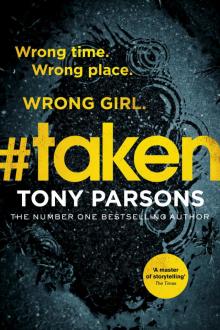 #taken
#taken The Family Way
The Family Way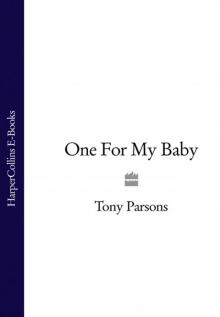 One For My Baby
One For My Baby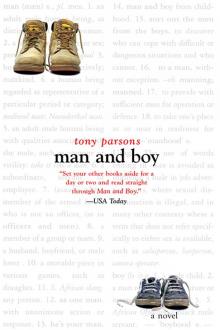 Man and Boy
Man and Boy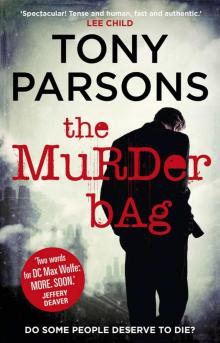 The Murder Bag
The Murder Bag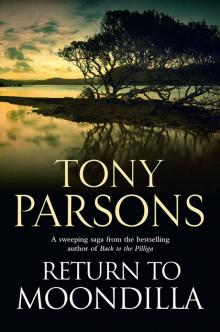 Return to Moondilla
Return to Moondilla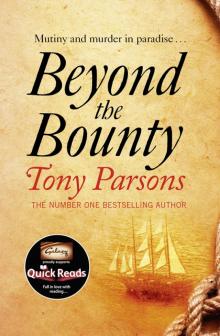 Beyond the Bounty
Beyond the Bounty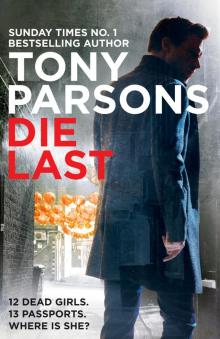 Die Last
Die Last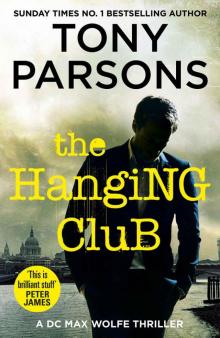 The Hanging Club (DC Max Wolfe)
The Hanging Club (DC Max Wolfe)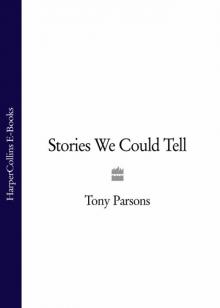 Stories We Could Tell
Stories We Could Tell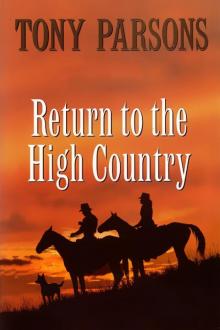 Return to the High Country
Return to the High Country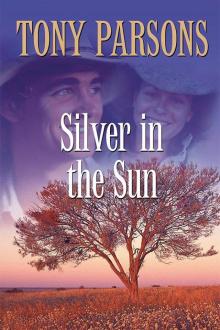 Silver in the Sun
Silver in the Sun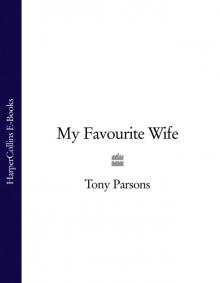 My Favourite Wife
My Favourite Wife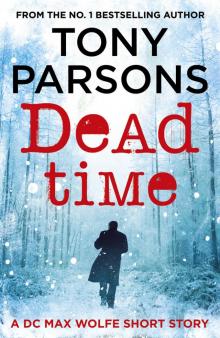 Dead Time
Dead Time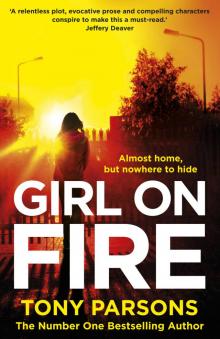 Girl On Fire
Girl On Fire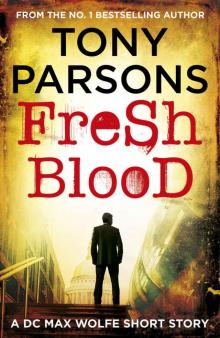 Max Wolfe 02.5 - Fresh Blood
Max Wolfe 02.5 - Fresh Blood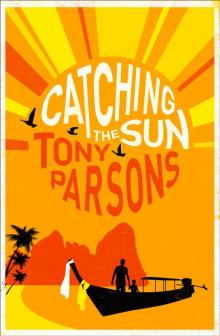 Catching the Sun
Catching the Sun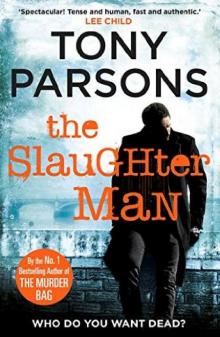 The Slaughter Man
The Slaughter Man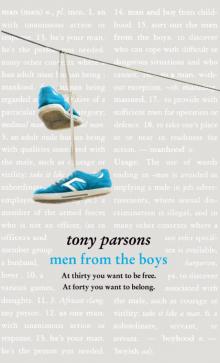 Men from the Boys
Men from the Boys Man and Wife
Man and Wife Valley of the White Gold
Valley of the White Gold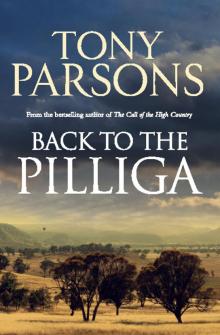 Back to the Pilliga
Back to the Pilliga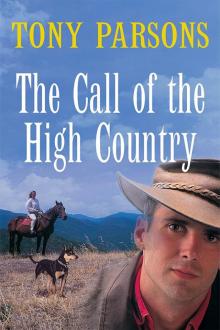 The Call of the High Country
The Call of the High Country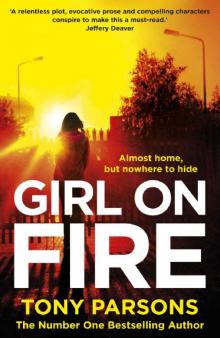 Girl On Fire_DC Max Wolfe
Girl On Fire_DC Max Wolfe